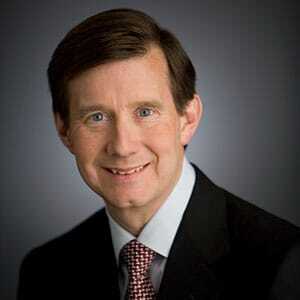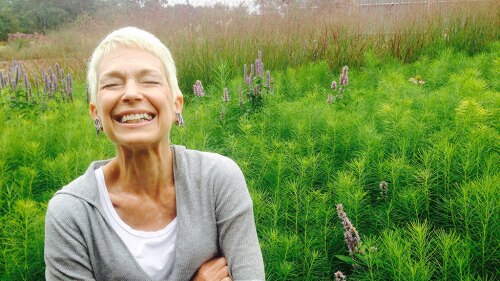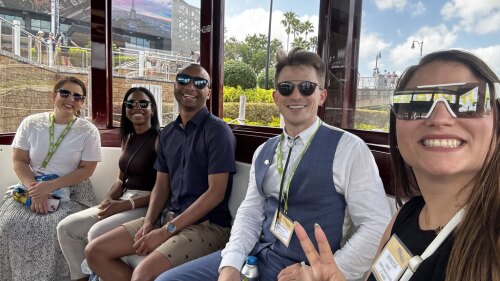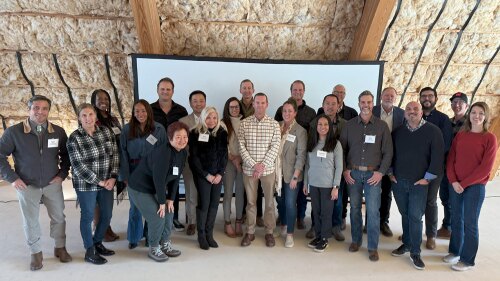The last few months have been some of the most challenging in many of our careers, with the outbreak of COVID-19 disrupting all aspects of our lives.
The effects on the real estate industry have been significant.
In addition to the challenges of managing businesses remotely, our 45,000-plus members around the world have had to tackle immediate issues ranging from low transaction volumes and tenants struggling to pay rent, through to the longer-term challenges of reopening our public spaces safely and designing the buildings of the future to be more resilient to public health crises. Along with this, many of us have been touched, personally and communally, by the killing of George Floyd and the subsequent outcry of protest that reached cities around the world.
In these difficult times, ULI members have come together to help each other by sharing their experiences, concerns, and best practices. We have embraced new technologies and formats to make these connections possible. Since March, we have hosted over 50 global and regional webinars as well as hundreds of online meetings at the district and national council levels, addressing the critical issues of the day, which are challenging all of us to blaze new trails.
One highlight of our digital programming has been our Spring Meeting Webinar Series. Over six weeks, we conducted 15 webinars based on programming that had been planned for the Spring Meeting in Toronto, including sessions on Waterfront Toronto, smart buildings, and climate-savvy real estate investment. To show support for our members, we provided the series free to full members, with programming available to nonmembers for a fee. The series proved to be exceptionally popular, attracting more than 3,300 unique registrants.
We also have seen strong digital programs in both our Europe and Asia Pacific regions, including our first half-day virtual conference in Singapore. ULI Singapore delivered five hours of engaging programming that mixed speaker presentations with panel discussions and member interaction. The event attracted more than 400 participants, and its production was supported by registration fees for nonmembers and strong levels of sponsorship.
These innovations have been important steps in allowing us to adapt our online offering to help members navigate the new normal. This year we will be delivering a very different Fall Meeting, enabling us to advance our mission and provide our members with the opportunities to connect and learn. At the time this issue of Urban Land was going to press, the meeting format was still being finalized, but the event will include virtual programming designed to capture both relevant industry topics and the unique characteristics of the San Francisco Bay area.
Despite our successes in pivoting to digital programming during the COVID-19 crisis, the cancellation of the Spring Meeting, the one-year postponement of the Asia Pacific Summit, plus the cancellation of all district and national council events have significantly reduced our revenues in the fiscal fourth quarter, resulting in negative operating results despite aggressive cost-cutting measures. Given the uncertain economic outlook and the continued risks related to events of the past few months, we are assuming that revenues will continue to be constrained. Therefore, we have cut about 15 percent of our operating costs, with the focus being on noncore areas to ensure that we are able to provide the same high level of service to our members and effectively deliver on our mission.
While cutting in some areas, we will continue to invest in programs that we see as key to the future health and direction of ULI. We remain committed to continually improving our member-facing technology to provide the best online experience possible. This will include looking at technologies that could offer better virtual event experiences for members, as well as enhancements to our Knowledge Finder platform, which allows members to explore ULI content.
We also will step up our efforts in the areas of diversity, inclusivity, and social equity. The killing of George Floyd and the intensity of the public reaction demonstrate how far our societies have yet to go in establishing equality. As an industry, we must take responsibility for our past mistakes that have led to structural inequalities and take a leadership role in finding solutions. We can start by working to expand the number of people of color who are in the real estate industry, who are our members, and who hold leadership positions at ULI. We are confident that we can mobilize our efforts across our council networks. Changing the demographics of our membership to more closely match society will lead to a greater diversity of views and potential solutions—and create a better ULI.
We also commit to working with our communities to reexamine today’s policies that perpetuate past discriminatory practices and to develop solutions that can help ameliorate social inequities rooted in those practices. Several of our Advisory Services panels have confronted this topic, including our Washington, D.C., panel last summer. Elevating the intensity of this conversation at both the city and national levels should improve the overall understanding of this challenge, which is a first, necessary step to accomplish real change. We believe there is much more that ULI can contribute to tackling inequality in our societies, and we will be actively working to bring about lasting change.
Finally, we will continue to invest in ensuring that our content and research meet the needs of our members. Our Center for Capital Markets and Real Estate, the Terwilliger Center for Housing, and the Center for Sustainability and Economic Performance all undertake research in key areas that affect both the real estate industry and our communities. We will continue to refine our offerings to provide our members with timely and useful information.
I would like to thank you all for your continued support of ULI through your membership, sponsorship, and philanthropic donations. Like all nonprofit organizations, we rely on your continued participation to deliver on our mission. That support is needed now more than ever.





